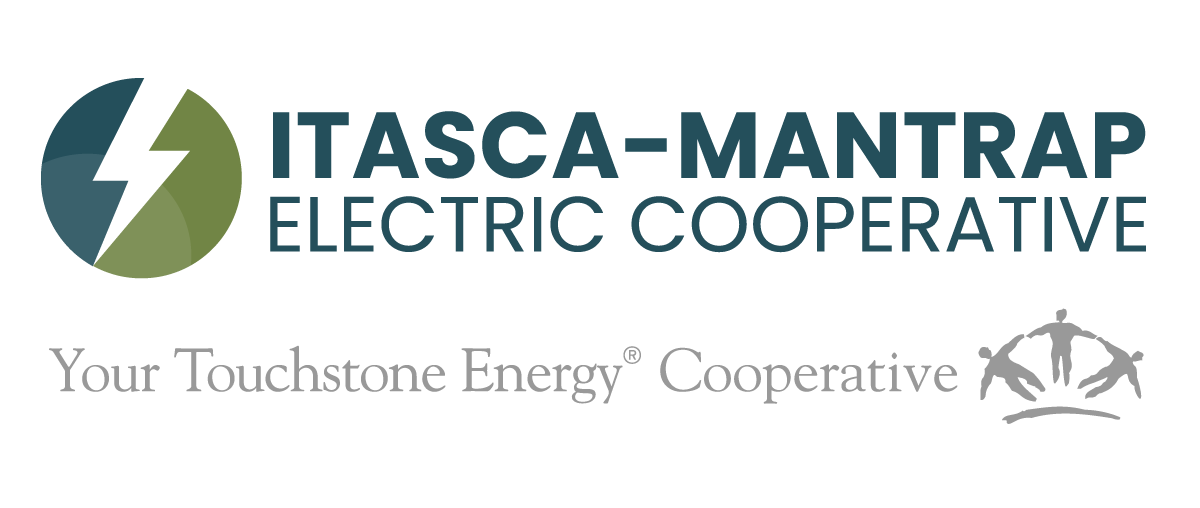Generator Safety
The safety of you, our members, and our employees is a top priority at Itasca-Mantrap Cooperative, especially during dangerous times. When storms hit our area, we rush to your aid as soon as possible to make repairs and restore power.
Our line crews take necessary precautions before they work on downed power lines. But even after these measures, our workers’ lives remain in your hands.
Itasca-Mantrap Cooperative is proud of our outstanding safety record, but sometimes, no matter how many steps we take to keep everyone safe, the very people we are there to help unknowingly put our lives—and their own—in danger.
Portable generators, widely used when power lines are down, can prove fatal to lineworkers and your neighbors when used improperly. Of course, no one would ever purposely cause the death of a lineworker. Nevertheless, a generator connected to a home’s wiring or plugged into a regular household outlet can cause backfeeding along power lines and electrocute anyone who comes in contact with them—even if the line seems dead.
And Itasca-Mantrap Cooperative employees are not the only ones in danger when a portable generator is used improperly. Generator owners themselves may be at risk of electrocution, fire injury, property damage, or carbon monoxide poisoning if they do not follow the necessary safety rules.
Portable generators can be very helpful to consumers during outages. But we urge you to follow these safety guidelines when using one:
- Never connect a generator directly to your home’s wiring unless your home has been wired for generator use. This can cause backfeeding along power lines and electrocute anyone coming in contact with them, including lineworkers making repairs. Have a licensed electrician install the equipment necessary to safely connect emergency generators to your home.
- Always plug appliances directly into generators. Connecting the generator to your home’s circuits or wiring must be done by a qualified, licensed electrician who will install a transfer switch to prevent backfeeding.
- Use heavy-duty, outdoor-rated extension cords. Make sure extension cords are free of cuts or tears and the plug has three prongs. Overloaded cords can cause fires or equipment damage.
- Ensure your generator is properly grounded.
- Never overload a generator. A portable generator should only be used when necessary to power essential equipment or appliances.
- Turn off all equipment powered by the generator before shutting it down.
- Keep the generator dry. Operate it on a dry surface under an open structure.
- Always have a fully charged fire extinguisher nearby.
- Never fuel a generator while it is operating.
- Read and adhere to the manufacturer’s instructions for safe operation. Never cut corners when it comes to safety.
We encourage you to protect the well-being and safety of your family during outages, and safeguard those who come to your aid during emergency situations. When we work together for safety and the good of our communities, we all benefit.
